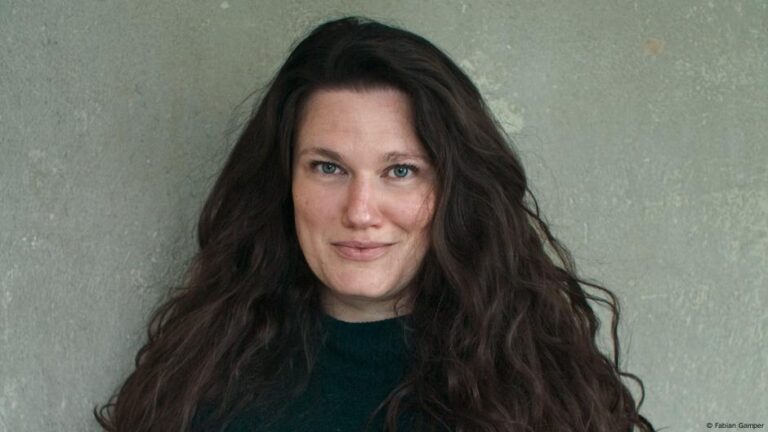“I’m very nervous,” the 41-year-old director and screenwriter Mascha Schilinski tells Berlin public broadcaster RBB. “I’m insanely happy, but the nervousness outweighs that.” She had hoped that “Sound of Falling” would be screened at a major festival, and felt it deserved that distinction. “But I didn’t really expect it. It’s a filmmaker’s dream!”
Now Schilinski is fulfilling that dream at the 78th Cannes International Film Festival, which runs from May 13 to 25. German directors at Cannes have been, as the German newspaper Süddeutsche Zeitung noted sardonically, “at times harder to find than a decent lunch for less than €20.”
This year, the country is also represented by Fatih Akin, whose historical film “Amrum” is screening out of competition, and Christian Petzold, whose feature “Mirrors No. 3” has been selected for the Directors’ Fortnight, an independent sidebar at the Cannes festival.
But Schilinski is the only German director with a film in the main competition, the first since Maren Ade caused a stir at the 2016 festival with “Toni Erdmann.”
Schilinski’s film is vying for the coveted Golden Palm award with works by directors like Wes Anderson, Kelly Reichardt and Richard Linklater.
Portrait of four generations
“Sound of Falling” is set on a farm in a small village in northeastern Germany. It follows the lives of four generations of women living on the farm, interweaving their stories by jumping back and forth among the different timelines until the lines between them blur, and what starts as portraits of four generations becomes a sweeping depiction of a century.
“As we went through the rooms of the farmhouse, we could sense the centuries,” says Schilinski. “It brought up a question I’ve had since childhood.” She explains that as a little girl growing up in a prewar apartment building in Berlin, she often wondered, “What happened between these walls in the past? Who has sat right in the spot where I’m now sitting? What fates played out here? What did the people who lived here experience and feel?” So her film is an attempt to imagine answers to those questions.
The female gaze in film
As with Schilinski’s 2017 debut film, “Dark Blue Girl,” a psychodrama about a complicated family dynamic, this latest work focuses on a female perspective. Schilinski says that the female gaze was very important to her and her co-writer, Louise Peter, because it’s so rare in films. “Sound of Falling” relates events from the points of view of women. “The film is very much about gazes, the gazes that women have been exposed to over the course of a century, how it feels today and also how it’s carried on and burned into the body,” the director explains.
Schilinski’s career path seems to have almost been predestined: Her mother is a filmmaker who took her along on film shoots, and she started acting for film and television while still at school. Then she did film business internships, worked as a casting agent, traveled through Europe and worked as a magician and fire dancer for a small traveling circus. After studying screenwriting at the Hamburg Film School, she settled in Berlin and began working as a freelance screenwriter for film and television.
She attracted some attention when “Dark Blue Girl” was screened at the 2017 Berlin International Film Festival, and her career is likely to get a further boost with the inclusion of her latest film in Cannes.
Schilinski says she couldn’t quite believe it when she first got the invitation to screen “Sound of Falling” there: “I checked to see if the ‘Official Selection’ was some sort of sidebar, or actually the main competition,” adding that, “We submitted the film to the three A festivals: Berlin, Venice and Cannes. We didn’t know if the selection committees would even watch the film. No one knew who we were.” But just before Christmas came the notification saying, “Congratulations, you’re in the Cannes main competition!”
This article was originally written in German.


